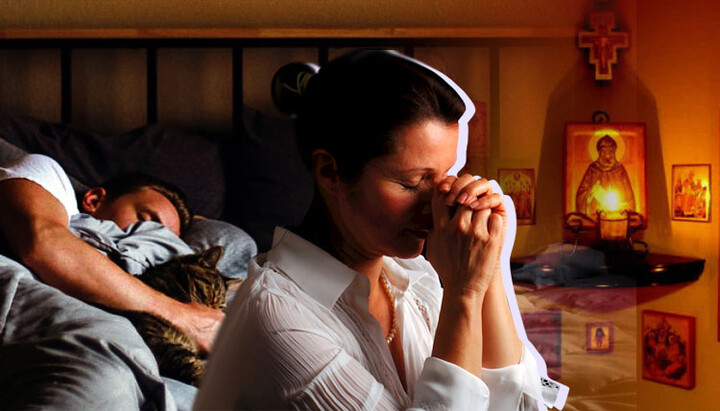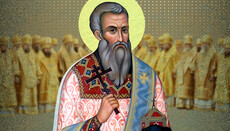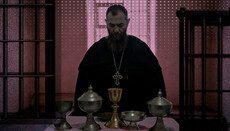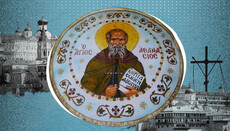On Eucharistic and marital fasting

In addition to the multi-day and one-day fasts in a Christian’s life, there are other forms of abstinence. Chief among them are the Eucharistic and marital fasts.
These two forms of fasting often become the subject of misunderstanding and even myth-making, so it is worth considering them not on the basis of rumors or dubious texts, but on the canons and patristic teaching.
Eucharistic fasting: from antiquity to the present day
A common opinion is that a three- or seven-day fast before Communion is exclusively a Slavic custom. But historical sources say otherwise: it was in the monastic environment of the Byzantine Empire in the 11th–12th centuries that the practice emerged of a lengthy preparation, including fasting before the Eucharist and the performance of a special prayer rule: “When someone desires to partake of the Holy Mysteries of Christ, he ought to keep himself in strict fasting, prayer, and complete sobriety for the whole week, from Monday, and then with fear and great reverence receive the Most Pure Mysteries” (Typikon, ch. 32).
Like many other customs, this one proved to be temporary. It did not enter other typika, did not become entrenched in practice, and in later Greek typika it was absent – but it remained in our unchanged edition of the Typikon.
In 1699, the “Didactic Notice” appeared in priestly service books, containing instructions for a seven-day fast before Communion, including marital abstinence during these days, confession, and other practices. This text, compiled by the monk Euthymius, was never approved by a council, but once included in the service book, it came to be perceived as authoritative and binding by many generations of priests who were unaware of its origins. The author relied not on genuine canons, but on dubious nomocanons and apocryphal rules, resulting in many strange, questionable, and even canonically contradictory statements.
If we turn to the conciliar rules, formulated already by the 4th century, the picture is different. The 50th canon of the Council of Carthage states: “The Holy Sacrament of the Altar should be celebrated by those who have not eaten.”
Given that the Liturgy may be celebrated at different times (early morning, midday, evening, or at night), it is usually guided by the Synodal decree of 1968, according to which fasting before the Liturgy should be at least six hours. This entails abstaining from food and drink, but does not apply to infants and the sick who require necessary medication or food. According to the 16th canon of St. Timothy, accidental swallowing of water does not impede Communion.
The contemporary document On the Participation of the Faithful in the Eucharist states that those who observe the multi-day and one-day fasts established by the Church do not need additional fasting days before receiving Communion.
Thus, the canonical requirement is several hours of abstinence from food and drink before the Eucharist.
That this is the correct understanding of the Eucharistic fast is also indirectly indicated by the presence in the typikon of days and even “continuous weeks” when fasting is cancelled, yet Liturgies are celebrated. For those who are not living a churchly life, receive Communion rarely, and do not observe the regular fasts, several days of fasting may well be assigned as a form of penance.
Marital fasting: counsel, not law
The same “Didactic Notice” speaks of seven days of marital abstinence before Communion (and even several days after). In practice, this often turns into absurd recommendations from certain spiritual fathers. For example, an acquaintance of mine, a priest, confessed in a certain monastery and received from an “elder” a blessing in the spirit of the above-mentioned instruction. Given the frequency of services, this priest’s life would have become a perpetual fast. Moreover, I have often heard similar advice from parishioners (mostly women) who received it from monastic confessors. It is worth recalling here that Church authorities in various centuries prohibited monks from performing parish needs and hearing the confessions of laypeople. But that is a separate topic.
Let us return to what the canons say about marital abstinence before Communion.
From the rules of St. Timothy, it follows that marital abstinence coincides in time with the Eucharistic fast.
St. Nicodemus of the Holy Mountain advises: “Husband and wife should refrain from marital relations on Saturday and Sunday, for on these days the Divine Liturgy is celebrated, and they should receive Communion.”
What else do the canons say about marital fasting? Nothing more – because the Church does not regulate marital relations. The typikon also says nothing about this, since it is monastic in nature.
The holy fathers usually go no further in their advice than the words of the Apostle Paul: “Do not deprive one another, except by agreement for a time, to devote yourselves to fasting and prayer; then come together again, so that Satan may not tempt you because of your lack of self-control. I say this by way of concession, not command” (1 Cor. 7:5).
Many will be surprised to learn that marital abstinence is not a condition for keeping any fast. The Apostle speaks of both fasting and prayer. And just as one can pray without interrupting marital life, so too can one combine it with fasting.
Marital fasting is beneficial as a spiritual exercise, but it is based on voluntary agreement, not on a Church requirement.
St. Gregory the Theologian explicitly says that it is “not a law, but counsel.” And the 4th canon of St. Dionysius states: “Those who have entered into marriage should be their own sufficient judges, for they have heard Paul writing that they should abstain from one another by consent, for a time.”
When ignorance breeds prohibitions
As we can see, neither the apostles, nor the fathers, nor the canons interfered in personal life. All other regulations of family life are the result of ignorance and tactlessness.
Professor S. I. Smirnov, based on his research into the life of Ancient Rus’, writes that some “spiritual fathers for centuries strove for the exact regulation of the everyday life of the faithful, especially in relation to the two basic instincts – nourishment and reproduction.”
For example, in the 12th century, the monk Kirik, who considered marriage a “tolerated evil,” tried to draw up a “rule” with specific indications of the “time and measure” of marital relations. Professor and canonist A. S. Pavlov called him “one of the many semi-literate priests among whom all the poor nomocanons circulated.” By the 15th century, in addition to the four multi-day fasts, Sundays, Saturdays, Fridays, Wednesdays, and Mondays had already been added to the list of “forbidden days.”
These ideas repeatedly found their way into canonical collections. However, such “calendars of sexual life” were not only unsupported by educated hierarchs, but directly condemned, and clergy were forbidden to teach in this manner.
Unfortunately, ignorance and lack of culture have repeatedly produced writings like Kirik’s, contrary to the Church’s canons and even Scripture.
Conclusion
Our Church has long needed serious theological work on a new typikon – especially for the laity – regarding worship, fasting, and other aspects of spiritual life. But are such changes really possible only through conciliar decisions of bishops?
Councils do not decide matters of our personal labor, solitude, or reading. And these are just as much tools of spiritual life as fasting. Each person decides for himself how much to read, when to work; likewise, the question of marriage or celibacy is decided personally. The rules here are only general recommendations, an attempt to show the logic of greater or lesser strictness.
Fasting is a tool whose significance is determined by its application. Without understanding its meaning and purpose, it brings no benefit. Its main essence is abstinence from passions, with bodily abstinence only serving as an aid.
So why should bodily fasting, being a neutral and non-dogmatic matter, require decisions at ecumenical councils? In fact, according to the canons, each local Church – even at the level of a single eparchy – has the right to establish its own rules of fasting. Moreover, the Christian himself, based on his life circumstances, may adjust the form of abstinence.











